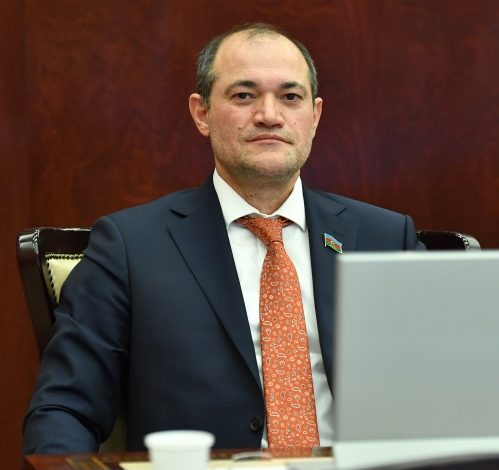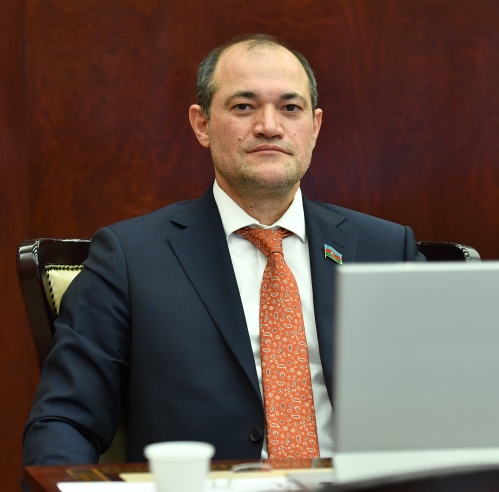Civil society in Azerbaijan has the last breath

Sharp criticism of the Ministry of Justice from Azerbaijani MP Razi Nurullayev: “As soon as they see the words of human rights or democracy in the name of an NGO, they immediately seem to be possessed by a demon.” Today in the country one of the main subjects of discussion is public control. Cebhe.info has interviewed Azerbaijani MP Razi Nurullayev, chairman of the National Front Party on this topic. The media talked with Mr. R. Nurullayev about the state of civil society in the country and the activities of NGOs.

- Mr. Nurullayev, you have been in the field of NGOs for a long time. Then you transferred into politics. And now you are a member of the Milli Majlis (Parliament of Azerbaijan). Have you completely broken with the civil society? And today I do not separate myself from civil society and I am always close to this sector. As you know, in 2009 restrictive clauses began to be added to the law “On Public Organizations”, and in 2014 this law became so strict that there were no opportunities for activities. A significant part of the members of the government, local executive power and other state structures began to perceive non-governmental organizations as anti-government and, accordingly, oppress them. Foreign donors in the literal sense of the word were expelled from the country, and their activities were tacitly banned. The government began to claim that NGOs receive grants and finance the opposition. As a participant in these processes, I can say that these claims do not apply to at least 95% of NGOs. Civil society organizations invited members of political parties to some trainings or conferences, which is not prohibited by law. During the elections, observers were trained, they carried out monitoring and submitted reports. That is, there were no illegal actions. If the Ministry of Justice wanted to better observe the activities of NGOs, then it should have registered them and create conditions for activities on the legal plane. But today the issue of registration is still very problematic.
– You noted the existence of problems with the registration of NGOs. Is the situation critical? Moreover, you put the words “non-governmental organizations” on a par with the words “anti-state organizations”. Is it true?
– The issue of registration of NGOs is still not resolved. In order to register an NGO, it is necessary to obtain permission from the upper echelons of government. I consider it wrong. Because it violates the rule of law. What law says that in order to register an organization, it is necessary to obtain permission from the upper echelons of power? Why do unwritten laws prevail over written ones in a state governed by the rule of law? Why should the Ministry of Justice prevent an NGO from choosing a name? As soon as the words “human rights” or “democracy” are seen in the name of some organization, it is immediately as if a demon takes possession of them. Countries that respect these words are valued all over the world. The authorities claim that the country is democratic and respects human rights. Why then should one be afraid of these words?
And generally speaking, to date, there are hundreds of NGOs that have applied but are still not registered. During the two years that I have been in parliament, I have raised this issue at least 5 times. We do not lose hope. Ever since the 90s, the phrase “non-governmental organization” was perceived as “anti-government”. On the ground, there are still executive structures that perceive them that way. There are long-term bans on holding events without permission. I would like to replace the term “non-governmental” with something else. The most successful, in my opinion, is the term non-profit organization, and I will try to bring this issue up for discussion in Parliament.
– How many NGOs, in your opinion, have closed or dissolved since 2009? Has this trend led to job closures?
– About 2,000 NGOs ceased their activities or left the country. About 30 international organizations and donors have closed their offices and stopped their activities. And hundreds of foreign funds stopped cooperation with Azerbaijan. And those who want to work and cooperate face incredible difficulties. Almost all the embassies of European states, offering organizations large and small grants, tried to help civil society get on its feet. But everything died, and the work stopped.
And the remaining NGOs that continue their activities are extremely weak and have lost their strength as democratic institutions since their financial resources are limited. Domestic resources are associated with several state funds, and their financial support is one-time and short-term.
The closure of so many local and foreign organizations means the closure of 50,000 jobs directly, and about 200,000 indirectly. Some experts are talking about the closure of almost 300,000 jobs. There are no exact statistics.
Given all these difficulties, we continue to raise issues so that restrictive laws are abolished and favorable conditions are created for a transparent and fruitful activity of civil society. We not only convey the voice of civil society but also contribute in every possible way to discussions on this issue.
– In one speech you noted that such a state of civil society is extremely dangerous for the future of the country. What does this mean?
– Civil society creates democratic institutions, helps to better implement socio-economic, humanitarian, and political transformations in society. In countries where there is no civil society and democratic institutions, any changes are painful, and sometimes even catastrophic. The weakening and displacement of civil society in our country is dangerous for our statehood. That is why we are interested in strengthening civil society and democratic institutions.
– A system of “single window” of non-governmental organizations has been created, and almost all NGOs that called this decision “revolutionary”, sang praises. What changed?
– Nothing changed. The electronic paperwork increased. True, some elements of the Single Window system can be considered progressive, but these are only details, and it doesn’t serve to benefit the problem. What is the use of it, if the documents accepted in electronic form do not lead to specific positive results? The problem of civil society is not to apply easily, but to be able to act freely and independently, cooperate with NGOs from other countries of the world, cooperate with international donors and receive funds, and carry out their activities without hindrance. And this is not. Online submission of documents does not affect the final decision. The rejections continue.
– NGOs cannot receive funds from abroad in any way, or are there those who receive?
– I do not monitor this, so I cannot give an exact answer. But, probably, there are those who receive, use various loopholes, but this is not an easy way. If they receive funds from abroad, they are forced to resort to non-transparent methods to receive and use these funds. There is almost no transparency and accountability. There is very little benefit from grants projects implemented in secret and non-transparent ways. I don’t blame NGOs for this. They try to somehow survive.
Legal restrictions applied to public organizations should be eliminated. Billions have been allocated around the world to fight the coronavirus. Why shouldn’t our public organizations be able to use these funds to help needy families? Why should the government take on all the problems?
The Horizon 2020 program of the European Commission has allocated 60 billion in grants for 2014-2020. In the year the program began in Azerbaijan, the law became even more strict. Have our scientists, institutions, universities, civil society, research centers been able to take advantage of this? Not! Failed. It would be better if the Ministry of Justice informed us about this so that we knew whether Azerbaijan was able to use some of these funds and how much was the number.
Hundreds of billions of dollars are currently being given away in grants around the world. Citizens, organizations transfer money to charitable organizations. In our country, the situation has been brought to the point where no one wants to do charity work. In 2020, charitable foundations and organizations received $471 billion in America. This is what keeps America going. Worldwide, the volume of gratuitous donations to charity reaches almost 800 billion dollars. How much of this money goes to our civil society? Not at all. Our laws do not allow it. This is an intolerable situation.
– President Ilham Aliyev said that public control is necessary and that the relevant citizens and organizations should be engaged in public control. But control sometimes creates certain problems. I would like to know your opinion on this …
– Naturally, my attitude to what the President said is positive. But let’s see if this can be implemented? No. Because professional organizations no longer exist, or they are on their last legs. And who is taking their place? Fraudsters. Under the name of public control, two institutions began to function, they began to impersonate institutions created by the President, and under this cover, they were engaged in fraud and corruption. The heads of both institutions have already been arrested.
Professionalism is needed to exercise public control. And what kind of professional approach can we talk about without funds? State structures can allocate grants, but then the freedom and neutrality of NGOs will be lost. If an NGO is financially dependent and must work according to orders for the funds it receives, what kind of public control can we talk about?
Only thanks to the State Support Agency for Non-Governmental Organizations of the Republic of Azerbaijan, public organizations receive a certain respite. Restrictions prohibit receiving financial assistance from foreign funds. Because of this prohibition, professional public control disappeared.
– And what do you suggest?
– What happened as a result of the application of restrictions? Organizations that have been accused of supporting color revolutions do get funded again by various means. And what has changed? Only all the neutral and professional organizations disappeared. I propose to completely abolish the restrictions applied to NGOs, foundations, and international donor organizations. Incentive steps are needed to reopen offices of international organizations in Azerbaijan. These are the creation of tens of thousands of jobs, the strengthening of democratic development, and the strengthening of democratic values and institutions.
At the same time, I propose to stimulate the creation of corporate funds within companies, and that the funds transferred to it be fully tax-free. I have numerously spoken of this in the Parliament and will again.